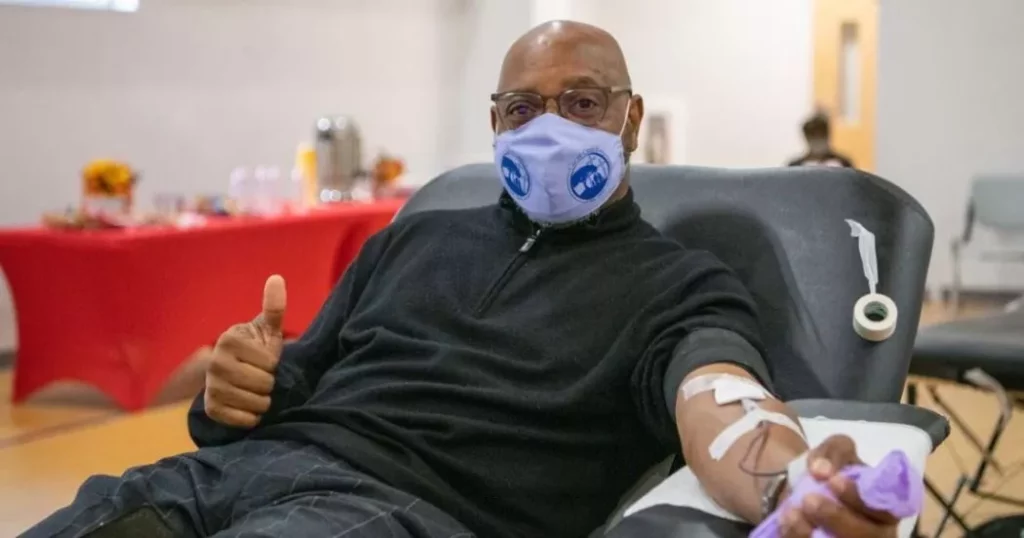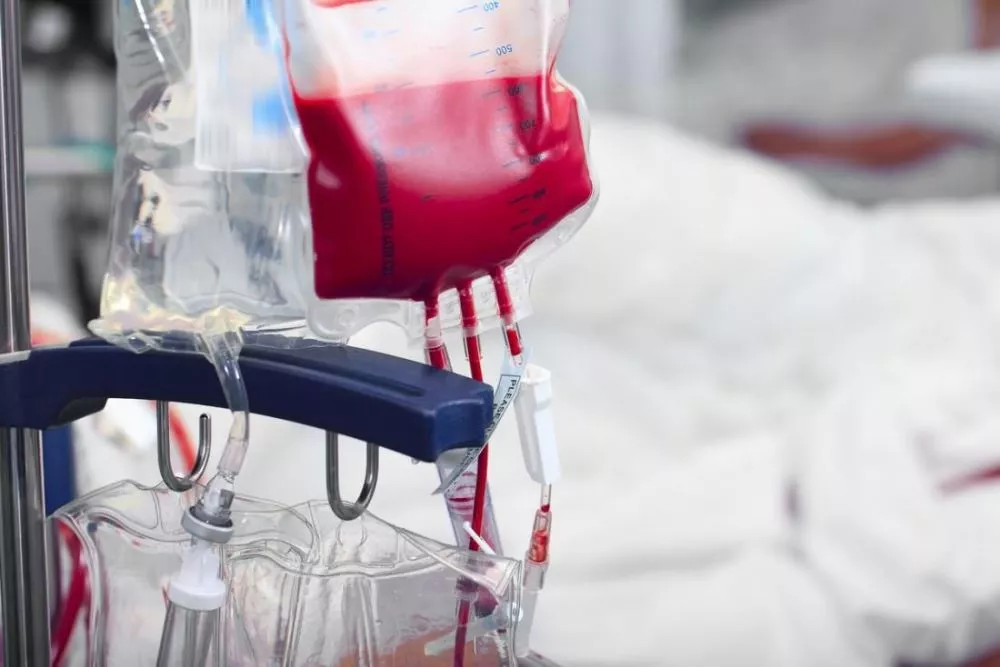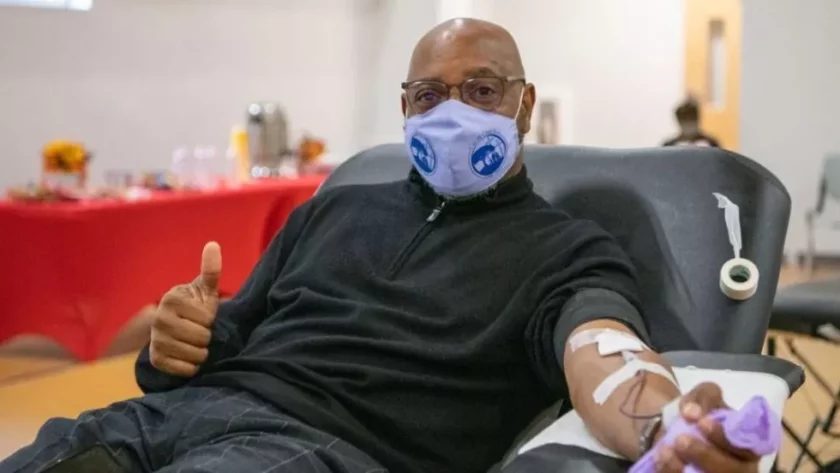OVER VIEW
Contents
Blood donate or donation is a good thing it prevents you from many diseases. And you’re one blood donation can save many lives.
In covid time, the world facing a crisis, which had an impact on the blood donation banks and transfusion services.
There are many health benefits with some side effects, In many countries, blood donations are unpaid.
A rule was taken out in India in 2007. if blood is sold or donated for money, then the guilty will face up to 3 months in jail and a fine.
Many people are afraid to blood donate, they think that donation, will be a lack of blood in the body. but it’s true.
Even, many donors donate blood for many reasons including:
- General Awareness
- helping a loved one
- taking first-time experience
- increasing confidence in themselves
NOTE: How important is blood donation for saving lives, that’s why 14th June is held every year as Blood Donation Day, to spread awareness.

Blood
It is necessary for us, even for every organism, which contains lots of nutrients, oxygen, and waste material.
NOTE: Our bone marrow makes red cells, plasma, and platelets.
An average adult person has 5 liters of blood, although it may increase in various conditions such as – During pregnancy women have 50% more blood.
Do you know – Someone needs blood every 2 seconds.
There are main 4 types of blood groups include – A, B, AB, and O. Each type has Rh-positive or Rh-negative.
AB is the universal recipient (a person who has this type, can receive any type of blood), and O negative is the universal donor of red blood cells.
Dr. Karl Landsteiner first identified the major human blood groups – A, B, AB, and O – in 1901 (2).
Types
Blood donation is divided into 2 groups are:
An allogeneic – In this, when a donor gives blood to a blood bank for transfusion to an unknown recipient.
A directed – In this, donating blood, often a family member, donates blood for transfusion to a specific person.
Who Should Do blood donation?
It’s the most common form of donation. even every healthy adult person can donate blood.
- If a person controls diabetes with diet and oral medicine, then the person can do a donation.
- Weight should be above 45 kg
- Women donate blood only after 1 year of delivery or when they have stopped breastfeeding.
- The donor should not have any type of infection.
- Hemoglobin level should be above 12-50 grams.
If you are a healthy citizen, you can donate blood after every 3 to 4 months. After 48 hours of donating blood, the body starts making blood.
NOTE: The blood taken by you may save many lives. people in hospital need more blood who have a blood disorders like:
- Anemia
- Accient patient
- Cancer
- blood is needed even during surgery due to blood loss
- Even after delivery women also face anemia.
- Thalassemia
Thalassemia is a genetic disorder, In this, a person has to be a blood transfusion 1 to 2 times a month.
Who Can’t Donate blood?
There are many several conditions, situations, and ages people who should avoid, or can’t go for donation. which include:
- Below the age of 18, and above 65 age of people can’t donate blood.
- If you have normal health issues, like cold, cough, headache, fever, or diarrhea. so you can’t also donate.
- Diabetes people, use insulin injections.
- Medical conditions people such as – cancer, HIV/AIDS, hepatitis B, severe lung disease, and heart patients.
- Tattoo skin
- Whose weight has been lost more than 5 kg in 6 months without any reason?
- If you are undergoing any medical treatment, consult your doctor before donating the blood.
Pros
Many doctors or researchers believed that blood donation is very good for your health. And your 1 unit of blood can save 3 lives.
Heart health is improved by donating blood.
Regular blood donation can help control the amount of iron in the blood.
After donating blood, the body starts producing new blood cells, which help maintain good health.
It is believed that regular blood donation is associated with decreased high blood pressure (3)
Blood is also used to diagnose several diseases or illnesses, such as:
- Diabetes
- High cholesterol
- Hepatitis
- HIV
- Thyroid test
- Heart disease
It has many health benefits, but still many people think that blood donation is a painful situation. which is not true.
In this, you will just feel a small prick in the beginning and after that, you will not even know when the blood was donated.
Other health benefits such as:
Cons
It is totally safe, for all healthy people, but some people may also feel headaches, nausea, and weakness, after the process, but it will last for some minute.
A study showed that regular blood donations increased the risk of heart disease. Another study showed that 2% of people had an adverse reaction to it.
Some other side effects that have been observed:
- Bruising of the needle area is the most common concern.
- arterial puncture
- nerve irritation or injury
- allergic reactions
Covid and blood donation
There is no deep relation between it, but a question asked by many peoples – After applying the vaccine, how many days can I donate blood?
NOTE: According to the National Blood transfusion council (NBTC) says that – you can donate blood after 14 days of vaccination.
Similarly, if you have recovered from covid, then you can donate blood after 28 days.
What Are The Things To Keep In Mind Before And After Donating Blood?

Many people think that Blood donation can increase the risk of HIV and many infections. which is not true, as long you donate at a registered blood bank, you are safe.
NOTE: Because all these registered banks, follow all the protocols equally, even in covid also worked well.
Learn More – Is Omicron End In 2022? And More Information On New Variant
Age, weight, and height are important factors when considering the eligibility of donors.
Before things
- Blood should be donated to registered blood banks and camps only, where doctors are also available.
- Before donating, eat light food, and drink water, which helps you in managing weakness.
- Do not drink alcohol 1 day before donating and do not smoke 2 to 3 hours before.
- Make sure, to carry an ID card with you, because it is vital to register every donor.
After things
- After donating blood, do not get up immediately, sit for at least 2 to 5 minutes.
- Eat something sugary food, so that the energy can come back quickly.
- Keep your fluid intake high for the next 24 to 48 hours so that you stay hydrated.
- Do not do any physical work for 4 to 5 hours after it.
- Eat healthy food for the next 24 hours, and doctors suggest that avoid smoking and alcohol next 24 hours.
In one study, the range was 20 to 59 days for recovery (4).
Obtaining the blood
A typical donation is 450 to 500 milliliters of whole blood is common, although larger 300 and 400-milliliter donations have become more common (5).
One other method is the filter method – In this, the desired part is stored, and returned the rest to the donor also known as apheresis.
NOTE: Blood is stored in a flexible plastic bag that also contains – sodium citrate, phosphate, dextrose, and adenine.
This combination preserves blood for up to 42 days without maintaining clotting (6) (7) Other chemicals can also be added during processes.
How do doctors know which blood is infected?
All donated blood is screened for blood-borne diseases such as – hepatitis, syphilis, and HIV.
NOTE: But if you are saving someone’s life or giving blood to someone then many tests are done before that such as:
A blood test to determine your ABO and RhD type, and blood group.
First-time donors like teenagers and women are at a higher chance of a reaction (8) (9).
Where Is the Blood Used?
Donated blood can be used in many different patients by separating platelets, plasma, and red cells.
Platelets
It helps in stopping bleeding, some people may also need platelets for certain diseases, dengue malaria, etc.
Red cells
They carry oxygen to the lungs and are made in the bone marrow.
Plasma
It is the largest part of our blood when it is separated from the blood, its looks like a light yellow liquid. It supports the immune system and treats burns and even cancer.
The whole blood plasma can be used to make transfusions or it can also be processed into other medications using a process called fractionation.
One unit of blood can be separated into several components: red blood cells, plasma, platelets, and cryoprecipitate.
BOTTOM LINE
The donation part can be divided into 4 parts – Registration, medical history, donation, and refreshment.
Regular blood donation can help control the amount of iron in the blood.



